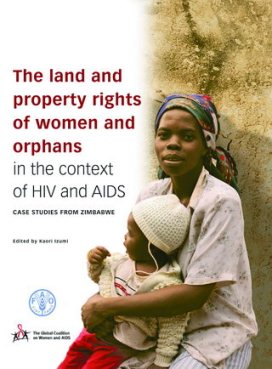Providing revealing empirical evidence and new insights based on interviews with key informants, focus group discussions and a semi-structured interview questionnaire, the study is framed around four Zimbabwean sites located in communal, resettlement and urban areas – Buhera, Bulawayo, Chimanimani and Seke.
The research critically examines Zimbabwe’s land and agriculture policies, and the utilization and efficacy of legal redress. It suggests and develops policy responses to cushion the impact of HIV/AIDS on local communities, especially dispossessed women. While confirming the vulnerability of widows and other categories of poor and vulnerable women and children to property rights violation, the study also analyses the critical roles played by women in establishing and managing urban and rural support initiatives.
1. Introduction and background to the study
2. Study sites, research instruments and study limitations
3. The land and property rights of widows, other vulnerable women and orphans in the study sites
4. Livelihood strategies of widows, other vulnerable groups of women and orphans in the study sites
5. Policy issues and recommendations
6. Concluding Remarks

